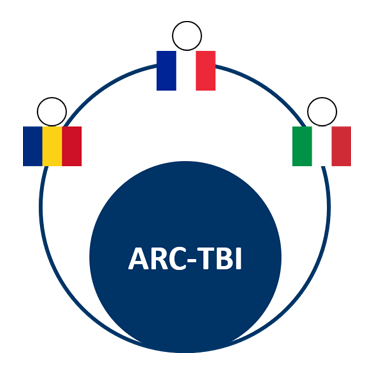Project No. 2019-1-RO01-KA202-063184 
Approaches in Rehabilitation of Children with TBI ARC-TBI
Start of Project: 01/10/2019
End of Project: 30/09/2021
Traumatic brain injury (TBI) is the first cause of long-term disability among young children and adults. TBI has a number of consequences on the child’s independence, functioning, and subsequent development in a number of domains. On physical level, if significant neurological deficits persist, some children do not regain walking or independence for basic activities of daily living. Regarding cognitive deficits, they are very frequent initially, and can worsen over time, as children “grow into their deficits” and do not make age expected progress. Frequent cognitive impairments comprise memory and attention deficits, executive functioning and, problem solving deficits. Children also often suffer language, communication, emotional and behavioral deficits (e.g. difficulty understanding demands, messages or to be understood by others, difficulty regulating and adapting behavior, difficulty expressing emotions, affections, sufferings regarding the deficits that the child becomes aware of and his comparison with pre-injury ability and with their siblings and peers). In the most severe cases, the recovery process of selfcare skills and personal hygiene and gait, the recovery of cognitive abilities is difficult, sometimes requiring long periods of hospitalization with intensive multidisciplinary rehabilitation. Besides all the medical issues, families face emotional problems that they can't manage without specialists help, sometimes specialist care is not available close to their home and they need to find accommodation near the hospital, they struggle in accessing psychological support for family and children. Frequent, often unpredictable deficits resulting from a traumatic brain injury, various long-term consequences and needs, to overcome his/her condition, determine the specialists to meet and work together in a unitary, multidisciplinary team that permanently searches for specialized adapted approaches to address the various deficits arising from this challenging condition.
Project objectives are:
- to improve the competences of specialists who are involved in the rehabilitation of children with TBI,
- to improve the medical practice by transferring good practice models of medical recovery and rehabilitation, in order to increase the quality of various therapies for the benefit of the children with TBI,
- to raise awareness about the issue of this condition that, in addition to the immediate deficits, leads to long-standing (lifelong) deficits, and requires very long term follow-up and care, to increase the visibility of our institution as one that can provide quality, professionally tailored services,
- to stimulate development of common projects, collaboration and future exchanges between teams.
The project has a direct target group consisting of neurologist, PRM specialists, psychologists, speech and language therapists, psychomotricians, physical therapists, occupational therapists who represent the specialists involved in offering assessment and therapy to children with TBI from participant organizations.
The project also addresses to all those who contribute to the care of the child who suffered a TBI
(hospital specialists, specialists from related organizations, family, school, community).
The project will contribute to the promotion of modern and international models connected with improvement of practices and will offer opportunity for connections and collaboration between institutions from different EU Member States.
Project Partners:




